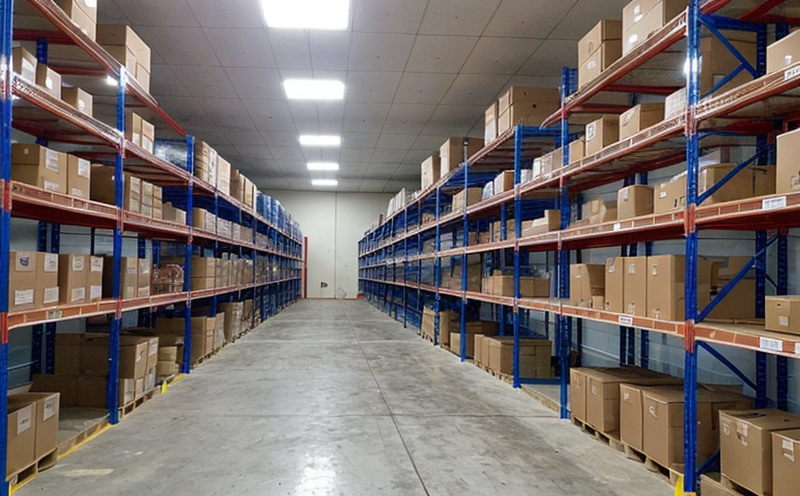Shelving system inspection
The inspection of shelving systems is a critical component within the broader context of warehouse and storage systems. Shelving systems play a pivotal role in ensuring that materials are stored safely, efficiently, and according to both industry standards and specific client requirements. In this section, we will explore the importance of regular inspections and how they contribute to overall operational safety and compliance.
Shelving systems must be designed to withstand the weight, size, and frequency of use expected in a warehouse setting. The materials used for construction should meet durability standards that are relevant to the environment where the shelving will be installed—whether it is exposed to moisture, high temperatures, or other environmental factors. Regular inspections help identify potential structural weaknesses before they become critical issues.
From an operational perspective, a well-maintained shelving system enhances productivity by ensuring that storage areas remain organized and accessible at all times. This organization reduces the risk of accidents caused by misplaced items or blocked aisles. Additionally, compliance with safety regulations is essential for minimizing liability risks associated with poor maintenance practices.
International standards such as ISO 14406-2:2013 provide guidelines on how to conduct inspections effectively while ensuring that all aspects of the shelving system are evaluated thoroughly. These include structural integrity checks, load capacity assessments, and verification of protective features like guards or barriers around open edges.
During an inspection, various tools may be employed depending upon what needs attention. For instance, non-destructive testing methods like ultrasonic flaw detection can assess the internal structure without causing damage to the shelving units themselves. Other manual inspections might involve visual checks for signs of wear and tear or measurement tools to verify dimensions.
The findings from these inspections are documented meticulously so that any necessary repairs or replacements can be planned accordingly. Proper documentation also serves as evidence during audits conducted by regulatory bodies or insurance companies.
In summary, regular shelving system inspections serve multiple purposes: enhancing safety, improving efficiency, promoting compliance, and extending the useful life of critical components within a warehouse environment. By adhering to best practices outlined in recognized standards like ISO 14406-2, organizations can ensure that their shelving systems remain reliable throughout their service lifecycle.
Why It Matters
The importance of regular inspections cannot be overstated when it comes to maintaining the integrity and functionality of shelving systems. These structures are integral parts of any warehouse or storage facility, bearing significant loads over extended periods. Any negligence in proper maintenance could lead to catastrophic failures resulting not only in property damage but also personal injuries.
- Structural Integrity: Ensuring that the shelves can support their intended weight without deformation is crucial for preventing collapses.
- Safety Compliance: Meeting local and international safety standards helps avoid costly fines or legal action.
- Operational Efficiency: Properly maintained shelving ensures efficient use of space, which translates directly into increased productivity.
Moreover, failing to conduct routine inspections can lead to hidden defects that may go unnoticed until they reach a critical stage. Early detection through regular checks allows for timely interventions before minor issues escalate into major problems requiring extensive repairs or replacements.
In essence, the proactive approach of scheduling frequent inspections contributes significantly towards safeguarding both personnel and assets within a facility while fostering an environment conducive to long-term success.
Eurolab Advantages
At Eurolab, we pride ourselves on delivering comprehensive shelving system inspection services tailored specifically for your needs. Our team comprises highly experienced professionals who possess deep knowledge of relevant international standards such as ISO 14406-2 and other sector-specific guidelines.
Our expertise extends beyond just conducting inspections; we offer a full range of support services including:
- Comprehensive Assessment: Detailed evaluation of the current condition of your shelving systems based on industry best practices.
- Detailed Documentation: Providing thorough reports that outline our findings along with recommendations for necessary actions.
- Training Programs: Offering workshops and seminars to help staff understand proper maintenance techniques and best practices.
- Support Services: Ensuring seamless communication between your team and ours throughout the inspection process.
With Eurolab, you gain access to state-of-the-art equipment and methodologies that ensure accurate assessments. Our commitment is not merely to perform inspections but also to contribute towards creating safer work environments for everyone involved in managing warehouse operations.
International Acceptance and Recognition
The International Organization for Standardization (ISO) has established multiple standards relevant to shelving system inspections, including ISO 14406-2:2013. This standard outlines comprehensive procedures for assessing storage systems, covering all stages from initial setup through ongoing maintenance.
- ISO 14406-2:2013: Provides guidelines on how to conduct detailed assessments of storage facilities, ensuring that every aspect is evaluated thoroughly.
In addition to ISO standards, local regulations also play a significant role in determining the scope and frequency of inspections. Compliance with these rules ensures not only adherence to legal requirements but also enhances trust among stakeholders involved in warehouse management.
Recognition from reputable organizations like Eurolab adds credibility to inspection results, providing assurance that your shelving systems meet stringent quality benchmarks. By partnering with us for your inspection needs, you can rest assured knowing that your facility is being evaluated by experts who adhere strictly to recognized protocols and procedures.





